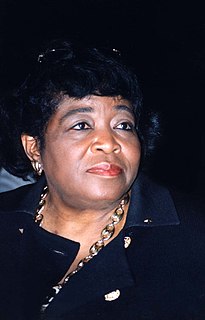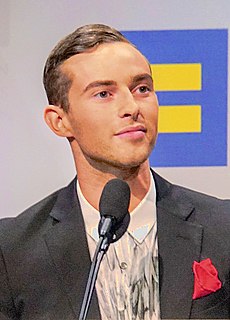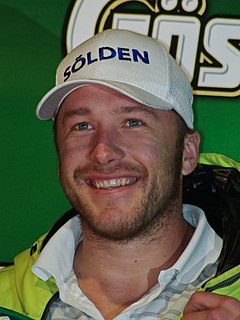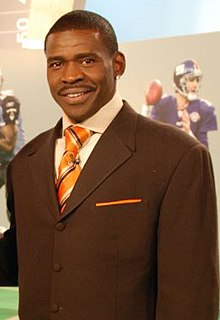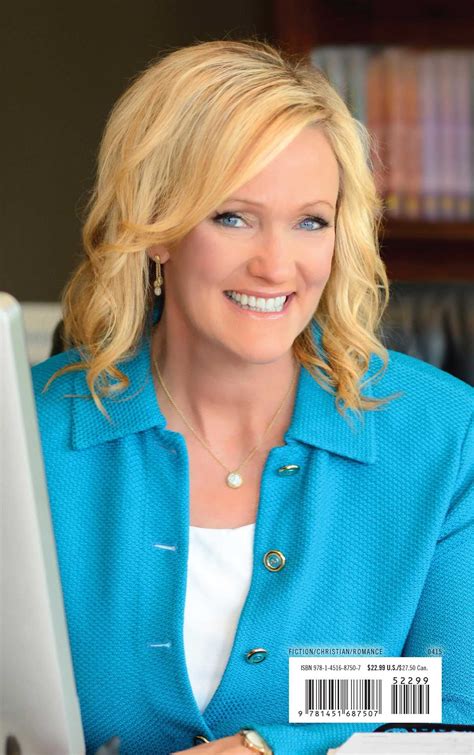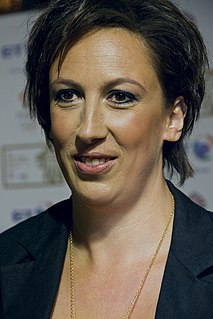A Quote by Betty Shabazz
I looked over and saw this man on the extreme right aisle sort of galloping to the podium. He was tall, he was thin, and the way he was galloping it looked as though he was going someplace much more important than the podium.
Related Quotes
We give the podium to a lot of people who shouldn't have the podium. The message that's delivered the loudest and in the most entertaining way is the one that we're going to put on because that's what we want. We want ratings more than we want to deliver information. That's just where the culture's gotten.
My earliest memory of the Olympics was watching the 1996 Games in Atlanta. I remember everyone being so excited to watch. Seeing the American athletes on the podium, I saw myself. I knew that that was what I wanted to do. I wanted to be one of those athletes on the podium representing their country and bringing home medals.
In 1951 I took my first art course. And one day I looked over my shoulder and there was this tall gentleman standing, very well-dressed and groomed, and he asked, "What is your name? I don't know you. What is your major?" I said history. And he looked at my drawing and looked at me and said, "You don't belong over there; you belong here." He was James A. Porter.
There is a story in Zen circles about a man and a horse. The horse is galloping quickly, and it appears that the man on the horse is going somewhere important. Another man standing alongside the road, shouts, «Where are you going?» and the first man replies, «I don't know! Ask the horse!» This is also our story. We are riding a horse, and we don't know where we are going and we can't stop. The horse is our habit energy pulling us along, and we are powerless.
They'd had fun, for sure. They laughed and enjoyed being together. But if she was painfully honest with herself, something was missing. Something in the way Tim looked at her. She remembered her mom's word. "I saw the way he looked at you...he adores you." Maybe that was it. Tim looked at her on a surface level. He smiled and seemed happy to see her. But When Cody looked at her, there were no layers left, nothing her didn't reveal, nothing he couldn't see. He didn't really look at her so much as he looked into her. To the deepest, most real places in her heart and soul.
In every phase of the automotive industry, certain factors have been more important than all others in relation to the way the automobile has looked. Phase One is really the Ford story. Function and production were the most important considerations. The automobile was an invention, and it looked like one.
Imagine for a moment playing by children's rules. If you were at a party and saw someone you liked, you could just go and hold their hand. If they then try to kiss you and you don't like it, you can push them over. If your aunty gives you a Christmas present that you're not too keen on, you can throw it back in her face and burst into tears. You can gallop freely. You can skip. Children have got it right. The tragedy is, none of this is permissible as an adult. Although one thing surely is – and I'll bet you know what I'm going to say – that's right, the galloping. Such fun!
